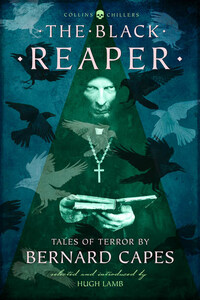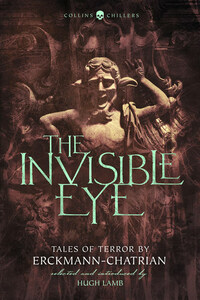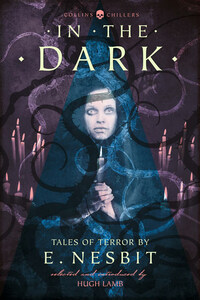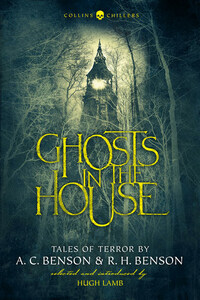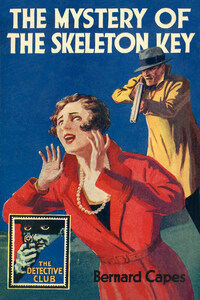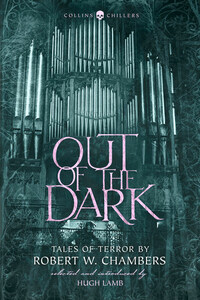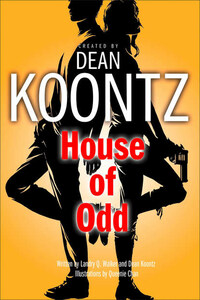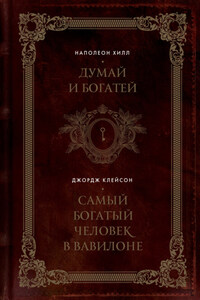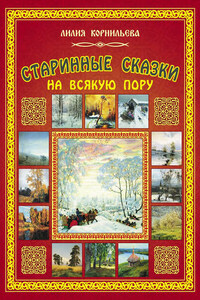HarperCollinsPublishers
1 London Bridge Street
London SE1 9GF
www.harpercollins.co.uk
First published in Great Britain by Equation 1989
Foreword © Ian Burns 2017
Introduction © Hugh Lamb 2017
Cover design by Mike Topping © HarperCollinsPublishers Ltd 2017
Cover images © Shutterstock.com
A catalogue copy of this book is available from the British Library.
This novel is entirely a work of fiction. The names, characters and incidents portrayed in it are the work of the author’s imagination. Any resemblance to actual persons, living or dead, events or localities is entirely coincidental.
All rights reserved under International and Pan-American Copyright Conventions. By payment of the required fees, you have been granted the non-exclusive, non-transferable right to access and read the text of this e-book on screen. No part of this text may be reproduced, transmitted, down-loaded, decompiled, reverse engineered, or stored in or introduced into any information storage and retrieval system, in any form or by any means, whether electronic or mechanical, now known or hereinafter invented, without the express written permission of HarperCollins.
Source ISBN: 9780008249076
Ebook Edition © October 2017 ISBN: 9780008249083
Version: 2017–09–07
These words are the culmination (so far, at least!) of a series of events which, together, tell a story that would have appealed hugely to Bernard Capes. It is a story of coincidences and timing, and the odd ounce or nanogram of good luck – all essential tools for an author. We could add, for the spookilyminded, a dash of the metaphysical to properly set the scene.
What made me go on to the Internet? Well, nothing other than ego: I wanted to see whether a book I’d written a few years ago could be purchased today. Without even a hint of surprise, it wasn’t listed anywhere; so I proceeded, with little confidence, to look up my grandfather ‘Bernard Capes’. And, lo! (I’m not sure why we use this expression, when we mean the exact opposite) there he was! Bernard E. Capes, At a Winter’s Fire, 1969 – seventy years after it was first published. Why on earth would someone reissue a comprehensively-forgotten (I thought) author, and then not in his own country?
The journey had begun!
I then wrote, for the Amazon Books site, a brief piece about my grandfather which – lo! again – drew a response from John in Connecticut, who’d come across a single phrase in Bloody Murder by Julian Symons: ‘… Bernard Capes’s neglected tour de forceThe Skeleton Key’.
Shortly after, I received an e-mail from Bruce in New York, who’d come across another Capes book that I didn’t know of, and – yet another lo! – he sent me a photocopy of the introduction to the original 1989 edition of The Black Reaper, another book I hadn’t heard of. It was a collection of short stories, and the editor was identified only as ‘Hugh Lamb, Sutton, Surrey, England’.
This wasn’t much to go on, but Lamb’s words (I almost said ‘tales’) told me so much that I didn’t know about my grandfather that I simply had to write to him. Indeed, until I read Hugh’s introduction, which filled in many gaps, all I knew about my grandfather was that my mother had adored him, that he had quite a sense of humour, that he died in a ’flu epidemic twenty years before I was born, and that his work was peppered with peerless similes.
Would my letter reach Hugh Lamb? Would he still be alive? And would he reply?
Yes, my letter was delivered. Bless Royal Mail!
Yes, he was still alive. Bless … well someone!
And yes, he did reply. Bless Hugh!
In his introduction, Hugh talks about my grandfather’s contrarian angel, and the bad luck he must have experienced, which led me somewhat to consider the parallels in our lives (his and mine). I’ve been fortunately deprived on the bad luck front and over-supplied on the good. However, bad luck is relative. To win second prize in a $30,000 competition at age forty-three, and first prize a year later, is luck of a kind that I would quite happily contribute half of my pension to receive! (From an Australian perspective, as well, being unable to breed rabbits would, to us, have been nearly as valuable as the Gold Rushes.)
The portrait of my grandfather that has been built up ought to give heart to other authors engaged in the eternal struggle to get published. Not many can say that they started at an age when many would have given up, and then actually had work published at an average rate of two books a year over a twenty-year period; and in fields ranging from poetry (two volumes) and history to detective stories, mysteries, romances, and – in numerous magazines – inventive tales of ghosts and other things which, deliciously, still go bump in the night.
